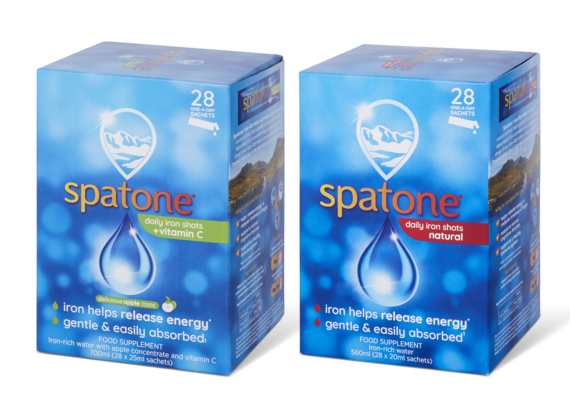The body's iron requirements increase significantly in pregnancy. Iron is necessary for creating haemoglobin, the oxygen carrying protein in red blood cells. Blood volume increases by almost 50 percent during pregnancy, so you require more iron to meet the increased demands. Extra iron is also needed for the placenta and the growing baby. You become anaemic when you no longer have enough iron to create the haemoglobin you require.
The HSE recommends that you try to eat iron-rich foods 2 to 3 times a week. Red meat such as beef, lamb and pork are good sources of iron. If you do not eat meat, aim to include plenty of non-meat sources of iron in your diet, such as:
- eggs
- pulses - beans, peas and lentils
- green vegetables - spinach and broccoli
- breakfast cereals with added iron
- dried fruit - prunes and apricots
Combine these foods with foods that are rich in vitamin C, such as oranges, kiwis, peppers and berries. Vitamin C helps your body to absorb and use the iron in your diet. Avoid tea or coffee around the time you are eating iron-rich foods. They reduce your body's ability to absorb iron.

Your risk of insufficient iron grows higher if you have severe morning sickness that causes frequent vomiting, if you've had two pregnancies close together, if you are carrying more than one baby, if you have an iron deficient diet, or if you had heavy prenatal menstrual flows.
A normal pregnancy diet requires from 18 to 27 milligrams of iron per day. This amount is difficult to achieve through diet alone, so it is recommended than an additional supplement of elemental iron is taken as a preventative measure
 Spatone® Iron-Rich Water is a natural supplement which is easily absorbed and gentle on the stomach. Packed in a convenient format, Spatone® provides you and your family with the iron you need to get the most out of life. As Spatone® has higher absorption it means less unabsorbed iron enters into the intestinal tract which cause fewer unpleasant effect often experienced by those taking iron supplements such as constipation and stomach irritation.
Spatone® Iron-Rich Water is a natural supplement which is easily absorbed and gentle on the stomach. Packed in a convenient format, Spatone® provides you and your family with the iron you need to get the most out of life. As Spatone® has higher absorption it means less unabsorbed iron enters into the intestinal tract which cause fewer unpleasant effect often experienced by those taking iron supplements such as constipation and stomach irritation.
Packed into single use sachets they are ideal for use on-the-go or at home.
The most common cause of anaemia in pregnancy is iron deficiency, but you might not know you are anaemic, especially if your condition is mild. If you do have symptoms you might feel tired, weak and dizzy, which can be normal in pregnancy whether you are anaemic or not. You will have a slight loss of colour, especially in your fingernail beds, the underside of your eyelids and lips. You might experience a rapid heartbeat, heart palpitations, shortness of breath, headache, irritability, and trouble concentrating.
Taking an iron supplement that is suitable for pregnancy and while you’re breastfeeding will ensure you don’t become anaemic.
And finally, a normal and harmless side effect of taking iron is that your stools may look darker in colour. Don't consume liver as a way to increase your iron levels. Liver contains unsafe amounts of vitamin A, which can cause birth defects, so it is best avoided during pregnancy.






